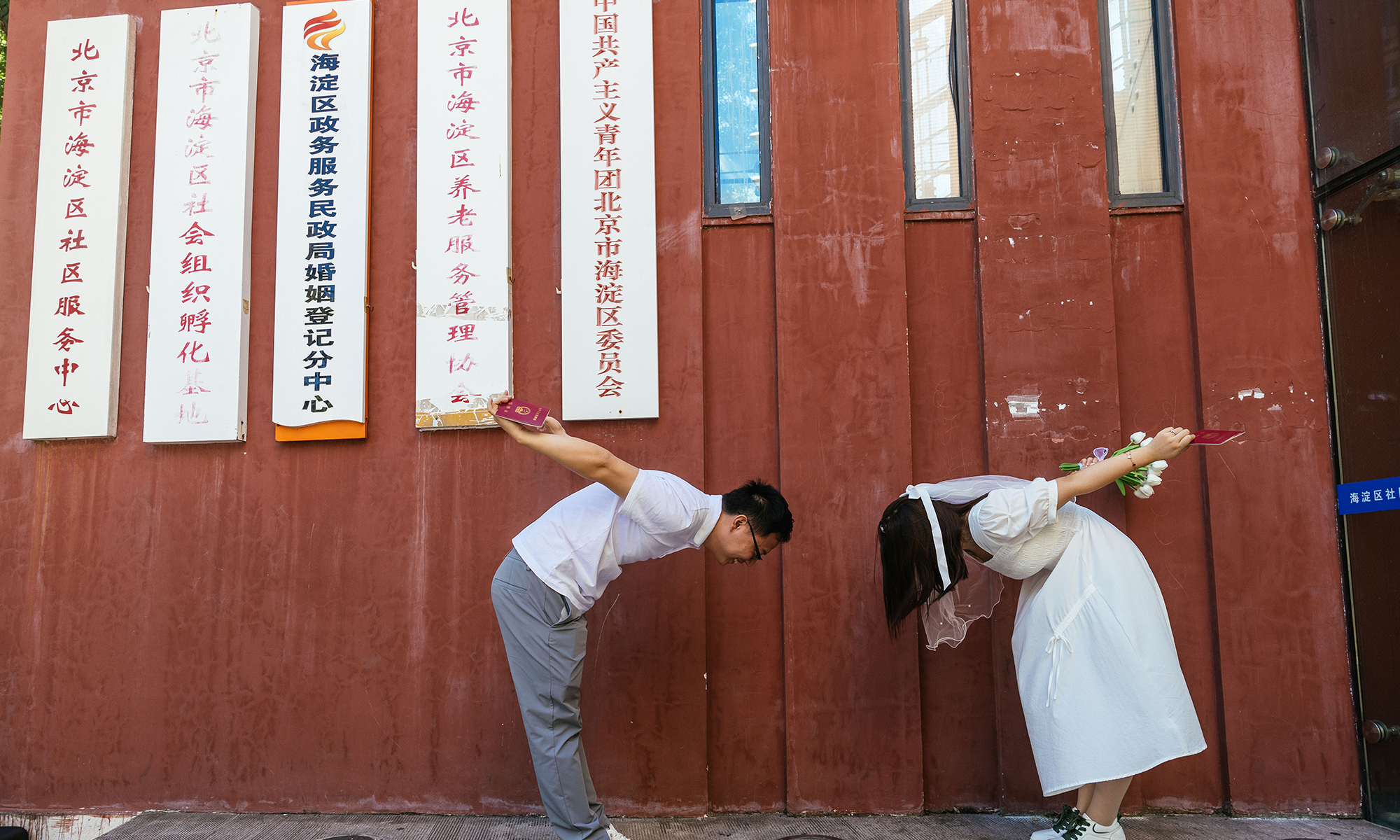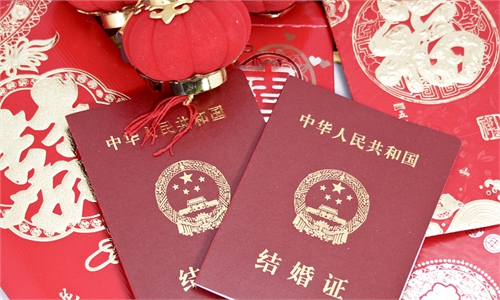Chinese cities see marriage registration rise on Qixi Festival following cross-regional program

Couples in Beijing celebrate Qixi Festival, also known as Chinese Valentine's Day, on August 22, 2023, by visiting the marriage registration offices of various districts' civil affairs bureaus to obtain their marriage certificates. Photo: Li Hao/GT
The number of marriage registrations in multiple cities across China increased year-on-year on Tuesday, the day of the traditional Qixi Festival, also known as Chinese Valentine's Day. It was the first Qixi since the country expanded an inter-provincial marriage registration pilot program to 21 provincial-level regions.Experts noted on Wednesday that the year-on-year rise in marriage registrations on the day was partly due to the impact of the pandemic in 2022, as well as people's increased recognition of traditional Chinese culture.
Thanks to Qixi Festival's romantic theme and cultural significance, many couples choose to tie the knot during the festival as they believe the day can bring good luck and blessings to their marriage.
In Beijing alone, a total of 3,250 couples were registered on Tuesday, among which, 1,253 were involved with cross-provincial services, The Beijing News reported. According to reports in 2022, a total of 1,389 couples registered on the day of the festival last year in Beijing.
In Beijing's Haidian district marriage registration office on Tuesday, the Global Times reporter witnessed many couples dressed up holding flowers or offering gifts to each other. They read wedding vows solemnly, and the employees from the registration office gave the newlyweds lectures about the responsibilities and obligations to marriage and family.
In Shanghai, a total of 1,338 couples registered for marriage on the day this year, far higher than the 503 couples during last year's Qixi Festival.
Jiang Quanbao, a professor with the Institute for Population and Development Studies at Xi'an Jiaotong University, told the Global Times on Wednesday that the rise in marriage registrations during the Qixi Festival can be attributed to several factors, such as the pandemic in 2022 and people's recognition of Chinese culture.
However, with the transformation and development of the economy and society, especially improvements in education and rapid urbanization, "people's conceptualization of marriage and marriage behavior have also changed, with late marriage one of the prominent trends," said Jiang. "The trend of young people delaying marriage will continue."
China recorded a decline in marriage registrations in 2022, with just 6.83 million marriages, according to the Ministry of Civil Affairs.
The country has been making efforts to build a marriage-friendly environment in recent years, including launching pilot projects to build a new-era marriage and childbearing culture.
In May, China's State Council approved the expansion of an inter-provincial marriage registration pilot program to 21 provincial-level regions across the country, including Beijing, Tianjin, Shanghai, and North China's Hebei Province, a move welcomed by the country's migrant population, who no longer need to return to their hometowns to register marriage.
Jiang also recommended promoting the value of marriage and the family in people's daily life, to eliminate the fear of marriage and child-bearing among some young people. More guidance and a friendly environment are needed to encourage young people to engage in healthy marriages.
Additionally, supportive measures including housing, child-raising cost reduction, and accelerating the development of childcare service systems also need to be further strengthened, said Jiang.
Along with Beijing and Shanghai, some other regions, including East China's Fujian and Jiangsu provinces and North China's Inner Mongolia Autonomous Region, all saw marriage registration spike during the festival.



